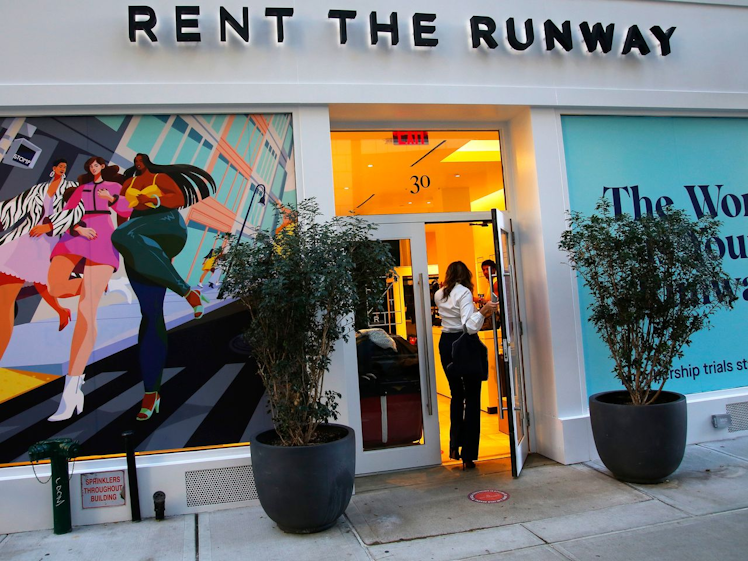Trending Assets
Top investors this month
Trending Assets
Top investors this month
Can fashion subscriptions be as common as a Netflix subscription?
Picture Zara, H&M, and SHEIN luring us with affordable, ever-changing styles accelerated by social media's influence. Yet, hidden behind this whirlwind lies a pressing question: when does our obsession with trends overcrowd our closets? Beyond overflowing wardrobes, fast fashion takes a toll on workers and the environment. Enter fashion rental services like Rent the Runway and Nuuly, offering an escape from ownership's burden but raising sustainability concerns. As fashion's landscape morphs, the clash between speed and sustainability begs contemplation. Can we redirect our focus from chasing trends to embracing enduring quality, steering fashion towards a more ethical, mindful future? Can these subscriptions be as common as a Netflix subscription? Are they be the holy grail to making the fashion industry sustainable?

Fast fashion refers to the rapidly changing cycles of inexpensive clothing designed to capture the latest trends. To do this, retailers utilize speedy supply chains and efficient manufacturing to offer a constant influx of new styles at low costs to consumers and high costs for workers and the environment. The pioneer of fast fashion, Zara, has benefited immensely from consumers adopting fast fashion. As a result, other retailers like H&M, SHEIN, and others hoped to achieve similar profits by entering this fashion niche. With the rise in social media and growing interest from people looking to become influencers, demand for on-trend affordability has only grown further. At what point do people realize that they need to stop taking frequent trips to Zara because their closet is full?
In response to the environmental and waste issues with fast fashion, we now have fashion rental companies. From Rent the Runway to Nuuly, consumers have many clothing subscription services to choose from. There are many ways that clothing rental companies can be similar or even an upgrade to fast fashion companies. One, a fashion rental service would encourage a frequent turnover of clothing, promoting a culture of constant consumption. Then, subscribers may feel pressured to regularly switch items to keep up with trends, driving increased consumption. In terms of quality, fast fashion clothing items are made with lower-quality materials but for clothing rental companies, all the frequent usage and cleaning will decrease the lifespan of those clothing items. Let’s not forget that in the end, both fast fashion and clothing rental companies hold mass appeal. While the industry is still in its infancy, fashion rental companies could become as normal to the average household as a Netflix subscription.
Let’s not forget that high-end fashion will benefit immensely from the growing in clothing subscriptions. High-end fashion is expensive and many have to stretch their budgets once a year to gain access to it. With a subscription, it will be easier for people to gain access to high-end fashion goods. Since high-end fashion goods are built with higher-quality materials, their shelf life will be longer and more fashion rental companies will probably be stocking up on clothes made of higher quality to enhance their products’ shelf lives.
The meteoric rise of fast fashion has transformed consumer behavior through its low prices and ever-changing inventory. However, the ethical and environmental impacts of this breakneck pace prompt examination beyond the bargain. Emerging innovations like clothing rental subscriptions provide greater access to variety, yet doubts persist on their sustainability. Ultimately, slowing fast fashion’s relentless cycle will require a cultural shift in values – away from reactive trend chasing toward deliberate cultivation of quality, versatile style. Rather than frenzied consumerism, a future aligned with richer fulfillment for all stakeholders may emerge by moving fashion from quantity toward more mindful quality.
Already have an account?